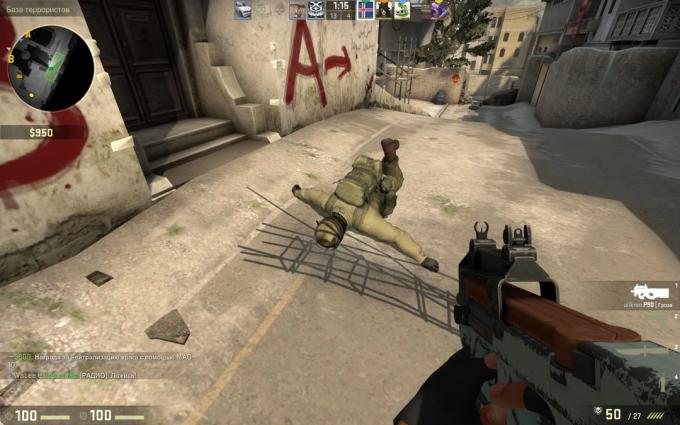Neuropsychologist - about the benefits and the hidden dangers of computer games
Games / / December 19, 2019

Nikita Khokhlov
Neuropsychologist, neuropsychology sector leader in the testing and development center "Humanitarian technologies". Expert Company "Vikium".
There is a prejudice that computer games are extremely harmful. What are their benefits and harms in terms of clinical psychology and neuropsychology?
Computer game - simulation of a particular activity, whether racing, aircraft management, strategy, quests. All this exists in real life, but in the games is simplified or hypertrophied to generate interest.
It is important to take into account two aspects of the game. First, the game is a pleasure. And what a pleasure, requires the person to repeat this action - the so-formed relationship. Second, the very activity that simulates the game. It can be useful, because it is training specific skills.
What is expressed in a positive effect, for example, sim games vehicle? What are the functions of the brain, they develop?

Games with driving of the vehicles - is the interaction with the space, and this is very lacking modern children.
In 70% of the children I see on the diagnosis, there is a shortage of space of the evaluation function.
Visuospatial functions include orientation of "right-left", "up-down", a size comparison, assessing the elements in space. Children who are taught to read early, almost always experience this difficulty. Reading activates the neural networks in the left hemisphere of the brain, but it does not activate the right hemisphere, which is up to 8 years for the majority of brain functions is leading to the normal development of the child.
When one hemisphere is working, the second is braked. Learning to read from 3-4 years without the simultaneous development of structural and spatial functions may lead to the mirror writing of letters and numbers that appear difficult to estimate the length. Such children often see squares as rectangles, bad memorize the location of objects in space.
The school requires a good read to the first class, it does not need advanced spatial features, so parents neglect their development.
If a child is taught to read, you need to give parallel play the games that it oriented in space, respond to changes in the environment, aware that somewhere you have to turn to the right, somewhere - to the left, somewhere - stay. This is all transferred to real life, so the benefits are.
Does the development of the child quests and strategies?
Children with whom I work, I advise you to play quests: it is necessary for the development of programming, regulation and control activities. In neuropsychology it stands out as a special regulatory function of the brain, which consists of three parts.
Programming - the ability to draw up an action program before they take place. Further - regulation. During the program it is necessary to consult with the plan, check if there are any abnormalities. And finally, the control - the result should be checked for compliance with the program.
The regulatory function is above the rest of the functions of the brain and is very important. People with poor regulatory function show a decline in all indicators in the diagnosis. In children, this feature is formed from 6-7 years, the development of a peak in an average of 12-14 years.
Games that require compliance with the rules (strategy, quests), some programs that you need something to find out, follow the instructions, help to develop the regulation and control. It is important that this happens in a game situation: the child is interesting, learning does not take place under duress, and involuntary level.
Games are simpler, requiring simple steps, where you must hit the ball, or to arrange pictures are still useful?
Such games are used in the development of electronic interactive simulators cognitive abilities.
However, a large part is made without taking into account the psychological laws, but in any case, the game where you have to something to react and make decisions quickly, develops attention and lower levels of voluntary regulation and control.
And what about the shooter? There, too, need fast response.

The shooter has positive aspects. This orientation in space: there is almost always traffic goes down the hall, you need to remember where he was, where he was no where to go. Develops attention and reaction.
Negative point - the load on the system power-consuming attention. You need to constantly be in a cautious state, the pressure in the subcortical brain structures that provide energy balance. This training is useful only in certain quantities. Excessive loss of energy leads to a waste of neurotransmitters that connect neurons. Cases where the children played for several days and died - just about it.
This game is like a man, he is of it no matter how tired, but on an objective level sverhustaot. At some point, there comes the collapse, when a person is good, the body runs out of the last forces. If you control the games on time, they can be useful.
You have touched on an important issue of time constraints. How much time a child can devote to games?
All individually. We have children with certain difficulties, congenital and acquired, which quickly get tired. For them, the restrictions should be more. I think that active games with a constant concentration of attention, you can not play more than an hour a day in the case of pathologies - no more than half an hour. But it is advisable to consult a psychologist.
For games where you can stop and think, like quests, such severe restrictions are not necessary. If it does not interfere with daily activities, studies, then this can be practiced several hours a day.
And now about the adults. They love to play Dota, Counter-Strike, World of Tanks. It is clear that there is a relaxation effect, but is there any benefit?

In my experience, there have been cases where adults admitted that they play in the game due to the stress in everyday life.
It is better to look for productive ways to deal with stress and not to leave only in the game. As one of the ways - why not? Nothing obviously wrong with that. Poor, if it is the only way to relax.
As for the benefit to the brain, where it is necessary to remember that the plasticity of the brain decreases with age. For 7-8 years the number of synapses in children is equal to the number of synapses in the adult, and nerve cells do not differ from adult neural cells. Then the plasticity of the brain falls into the 12-14 years and after 17-18 years, although some of the processes developed in the future.
Significant changes in brain activity in adults is difficult to achieve without the help of a neuropsychologist or psychophysiologist do it right is almost impossible. But the psychological effect can be, it all depends on the task.
Games can maintain a state of brain activity, but not change it.
It is known that driving a car extends the mental activity in the elderly. Recently, it was a study that showed that people vodivshie car in old age, performed better in cognitive tests.
With games, apparently, the same situation. There are studies showing that video games specially designed to stimulate the development of working memory and attention in the elderly. It is not yet possible to measure the dynamics from an early age, because the games are relatively new, and those who play them, have not reached the elderly. Existing studies are usually conducted on those who have not played.
How is the game addictive? And what games to play better adults?
If the game is used as a way to relax, it is getting positive emotions that need to be controlled. A person can choose when to do it, and manage dose of positive emotions. Any physiological system strives for positive reinforcement, so people without external control and adequate voluntary control will increasingly play, and strive to go into addiction.
Adults useful to play games that are cognitive function, such as training quests encyclopedic information. Although mention specific genres would be wrong: all a matter of psychological mechanisms and functions of the brain that respond to the game, not in the genre.
Many are concerned about the game with scenes of violence and cruelty. Ostensibly it provokes teenage violence. They are really so bad influence? Are there any games that something more dangerous than violent scenes?

Yes, there were rumors that the game with scenes of violence provoke crime, but research is denied. The vast majority of children and adolescents perfectly distinguish the game and life situations.
Moreover, a certain aggression that could be realized in life, finds a way out in a game situation, which reduces aggressive behavior.
Worse in other games - the illusion of the reversibility of the effects.
Most games can be saved and revert back. In life, it's obviously not the case and this game habit reduces adequacy of behavior and leads to rash decisions.
Violent scenes in games may cause additional interest, but in most cases it is limited to search Internet information about the murder of the methods of torture, but it is a cognitive situation than the pursuit of violence.
Some literary works and movies much stronger provoke aggression.
For example, the known phenomenon of the book "The Sorrows of Young Werther"Goethe, which caused a wave of suicides in Europe, because many wanted to be like the main character. Here blurs the boundaries between suicide in real life and in fiction suicide.
In the game, this limit is usually not erased, all deliberately artificial, it takes place in the framework of the screen, which one sees in front of him, and rarely mixed with real life. If mixed, it occurs in people who are up to the games had difficulty with the perception of reality, were delusional constructions connected with the existence of alternate realities.
conclusions
- Computer games help children develop spatial skills, regulation and control, as well as attention.
- In action games your child can play no more than an hour a day.
- Games - a good way to cope with stress, if not prevent the abuse.
- Computer games help adults maintain brain activity.
- It is useful to play games with educational elements: quests, strategy, learning games.
- Computer games can reduce the adequacy of behavior that can lead to rash decisions. But violence and aggression they themselves do not cause in itself.



